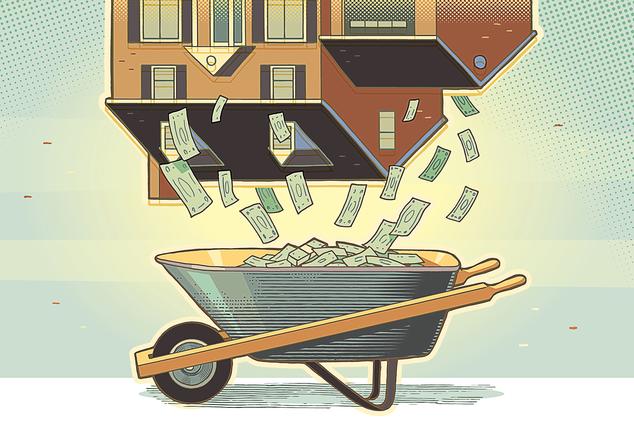A reverse mortgage enables homeowners aged 62 and up to take advantage of their home’s equity. For example, a homeowner who owns their house outright can use a reverse mortgage to extract a portion of their equity without needing to repay it till they leave the property.
You might be asking why anybody would want to take out a loan against their property, which they have worked so hard to pay off. This blog will go over all there is to know regarding reverse mortgages. Continue reading to learn more!
What is a reverse mortgage?
A reverse mortgage loan based on your home’s current paid-up value or equity. Unlike a traditional mortgage, you get payment from your lender in monthly installments, a variable line of credit, or a lump sum.
You don’t need to pay back the loan till you sell your home, relocate, or pass away. Then, when your balance is due, it is removed from the money from the sale, and any money left over is given to you or your heirs.
A home equity conversion mortgage (HECM) is the most prevalent reverse mortgage, and the Federal Housing Administration ensures it.
You might be able to receive a reverse mortgage from your state or local government and commercial lenders.
If the loan sum exceeds the home’s sale price, government insurance ensures that your successors will not have to pay more than 95% of the appraised value. The remaining sum is covered by mortgage insurance.
What are the requirements to keep in mind for a reverse mortgage?
The primary homeowner must be 62 years old or older to qualify for a reverse mortgage. In addition, the following are some of the extra eligibility requirements:
- You must either own the property outright or have paid down a significant portion of your mortgage.
- You must live in the property as your primary residence.
- You are not allowed to be in arrears on any federal debt.
- You must be able to afford to pay your property taxes, homeowners insurance, and homeowners association dues in the future.
- You must attend an information session led by a reverse mortgage counselor who the US Department approves of Housing and Urban Development (HUD).
What is the amount of money you can get from a reverse mortgage?
The amount of money you can collect from a reverse mortgage is determined by various factors, including the current market value of your house, your age, current interest rates, the kind of reverse mortgage you have, its related charges, and your financial situation.
If the house has any additional mortgages or liens, the amount you obtain will be affected. In addition, if you have a balance on a home equity loan or a home equity line of credit (HELOC), or if you have tax liens or judgments, the reverse mortgage earnings will have to be used to pay them off first.









